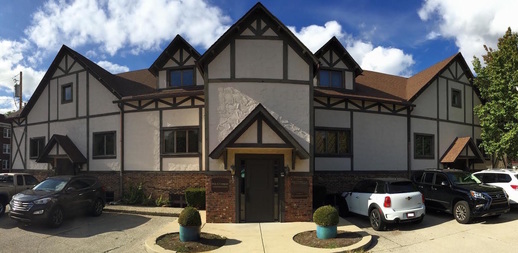Alimony (Maintenance) Attorney Lexington KY
 Fill out the Contact Form below to schedule a free Maintenance consultation.
Fill out the Contact Form below to schedule a free Maintenance consultation.
Maintenance (formerly known as alimony) can be a complex and complicated issue in a Kentucky divorce case. Clients often ask Lexington attorney Breck Norment to guess what they might be expected to pay in maintenance/alimony. Others want to know how much maintenance/alimony they might be entitled to. Unfortunately, such an estimation is no easy task.
In Fayette Family Court (and in other counties across Kentucky), there is no bright-line rule for a maintenance determination. Contrast this with Child Support which can be estimated somewhat accurately based on Kentucky’s Child Support Guidelines. Kentucky courts look to KRS 403.200 for guidance in determining maintenance/alimony. Before a Kentucky court can grant a spouse maintenance, it must find that the spouse seeking maintenance:
Once a Kentucky court determines whether maintenance is warranted under the circumstances, it must then determine an appropriate amount. Furthermore, the court must determine how long the maintenance/alimony payments should endure. In making this determination, Kentucky courts consider “all relevant factors” including:
Based on KRS 403.200, Kentucky courts are tasked with using these balancing tests to determine an appropriate maintenance/alimony award. Each case is different and one of the keys to success is focusing on these factors and analyzing the facts of your case accordingly. This is yet another time during the divorce process when you will want someone like Lexington divorce attorney Breck Norment on your side. Mr. Norment will gather evidence to support your position, prepare your case for a final hearing, and if trial is necessary, help present your best case to the court for determination.
Although Kentucky is generally a “no fault” state when it comes to divorce, fault (or “marital misconduct”) can play a role in maintenance determinations. If the spouse seeking maintenance caused the divorce to occur due to adultery, for example, the amount of maintenance might be reduced due to that spouse’s marital misconduct. Generally speaking, marital misconduct will not preclude a spouse from seeking maintenance, but it could have a direct effect on the amount and/or duration of the maintenance award.
Generally, Kentucky courts will not allow a party seeking maintenance to punish a spouse who engaged in marital misconduct by extorting an amount greater than what the statute would legitimately allow. This is because “fault is not a factor to be considered in arriving at a just amount of maintenance except to prevent a possible windfall to the faulty party seeking it.” Platt v. Platt, 728 S.W.2d 542 (Ky. App. 1987).
Maintenance can be sought permanently (after the divorce) or during the pendency of the divorce (pendente lite relief).
If you or a loved one need a divorce, please contact divorce lawyer Breck Norment for a consultation at 859-303-6007. Maintenance is just one of the many issues which might arise in a Kentucky divorce, and Mr. Norment is well-equipped to help and fight in your corner.
In Fayette Family Court (and in other counties across Kentucky), there is no bright-line rule for a maintenance determination. Contrast this with Child Support which can be estimated somewhat accurately based on Kentucky’s Child Support Guidelines. Kentucky courts look to KRS 403.200 for guidance in determining maintenance/alimony. Before a Kentucky court can grant a spouse maintenance, it must find that the spouse seeking maintenance:
- Lacks sufficient property, including marital property apportioned to him, to provide for his reasonable needs; and
- Is unable to support himself through appropriate employment or is the custodian of a child whose condition or circumstances make it appropriate that the custodian not be required to seek employment outside the home.
Once a Kentucky court determines whether maintenance is warranted under the circumstances, it must then determine an appropriate amount. Furthermore, the court must determine how long the maintenance/alimony payments should endure. In making this determination, Kentucky courts consider “all relevant factors” including:
- The financial resources of the party seeking maintenance, including marital property apportioned to him, and his ability to meet his needs independently, including the extent to which a provision for support of a child living with the party includes a sum for that party as custodian.
- The time necessary to acquire sufficient education or training to enable the party seeking maintenance to find appropriate employment;
- The standard of living established during the marriage;
- The duration of the marriage;
- The age, and the physical and emotional condition of the spouse seeking maintenance; and
- The ability of the spouse from whom maintenance is sought to meet his needs while meeting those of the spouse seeking maintenance.
Based on KRS 403.200, Kentucky courts are tasked with using these balancing tests to determine an appropriate maintenance/alimony award. Each case is different and one of the keys to success is focusing on these factors and analyzing the facts of your case accordingly. This is yet another time during the divorce process when you will want someone like Lexington divorce attorney Breck Norment on your side. Mr. Norment will gather evidence to support your position, prepare your case for a final hearing, and if trial is necessary, help present your best case to the court for determination.
Although Kentucky is generally a “no fault” state when it comes to divorce, fault (or “marital misconduct”) can play a role in maintenance determinations. If the spouse seeking maintenance caused the divorce to occur due to adultery, for example, the amount of maintenance might be reduced due to that spouse’s marital misconduct. Generally speaking, marital misconduct will not preclude a spouse from seeking maintenance, but it could have a direct effect on the amount and/or duration of the maintenance award.
Generally, Kentucky courts will not allow a party seeking maintenance to punish a spouse who engaged in marital misconduct by extorting an amount greater than what the statute would legitimately allow. This is because “fault is not a factor to be considered in arriving at a just amount of maintenance except to prevent a possible windfall to the faulty party seeking it.” Platt v. Platt, 728 S.W.2d 542 (Ky. App. 1987).
Maintenance can be sought permanently (after the divorce) or during the pendency of the divorce (pendente lite relief).
If you or a loved one need a divorce, please contact divorce lawyer Breck Norment for a consultation at 859-303-6007. Maintenance is just one of the many issues which might arise in a Kentucky divorce, and Mr. Norment is well-equipped to help and fight in your corner.
